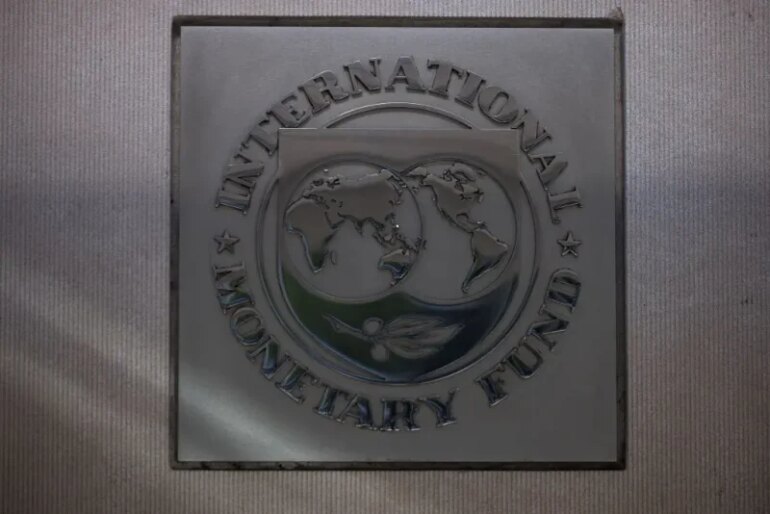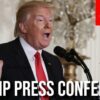🔴 Website 👉 https://u-s-news.com/
Telegram 👉 https://t.me/usnewscom_channel
OAN Commentary by: Theodore R. Malloch
Wednesday, May 21, 2025
Rarely does Trump World sketch out its sweeping plans in Establishment salons. The president usually prefers to speak in his own voice, from the Oval Office, as the press reels in surprise and wonder, making markets gyrate and lawmakers jump.
But, this past week or so, two influential voices in the Trump orbit gave forceful addresses to institutional insiders—laying out bold new visions for the International Monetary Fund, the World Bank, and the U.S. Federal Reserve. Put the two speeches together and it reveals the biggest reimaging of international economics since the 1985 Plaza Accords. Call it a Bessent-Warsh doctrine.
Yet, the markets and lawmakers seem to have missed it.
Advertisement
The Humphrey-Hawkins Act of 1976 resulted largely from lobbying by a coalition of black and multiethnic organizations, socialists, democratic leftists, labor unions, Cold War liberals, Senator Hubert Humphrey of Minnesota, and black Representative Augustus Hawkins of California and was based on Keynesian ideas around a misguided notion of full employment.
The Act which set the definitions and structure of U.S. economic arrangements is dated and needs to be replaced. The Federal Reserve System is outmoded and needs restructuring.
The Bretton Woods global institutions were also created for the immediate post-WWII environment. The IMF and World Bank need radical fixing and revamping so as to achieve their core missions.
Lets call the new proposal Bessent-Warsh and get it right for our times. Trump wants to make a lasting imprint—this is how you do it on national and global economic policy.
The place to begin is to listen to the two brilliant speeches made by the Secretary of the Treasury and the next Chairman of the Fed last week. Together they outline the contours of where we need to go.
Former Federal Reserve Governor Kevin Warsh unleashed a barrage of criticism of the Fed and argued for fundamental changes on how it operates or fails to act.
In a speech full of criticisms on what he would do differently, Warsh said he believes in the Fed’s “operational independence” but argued it has gone way beyond its remit and undermined its claims to independence. It needs to be revamped. The Fed is wounded, largely by self-inflicted mistakes, and needs a “strategic reset” to restore its credibility and independence.
“Independence is reflexively declared, all too often in my view, when the Fed is criticized,” he told a conference in Washington organized by the Group of Thirty, an international body of financiers and academics.
He urged the Fed to stop relying on “stale” government data, subject to revision, to guide its decisions, and on letting the public know policymakers’ economic forecasts and where they believe interest rates may be headed. He wants a market-based economy where the actual market sets the rates not a bunch of political appointees who are unattached and dilly, act late, or are confused by reams of data.
“Fed leaders would be well-served to skip opportunities to share their latest musings,” Warsh told the group, which included former and current central bankers from around the world who were in Washington to attend the spring meetings of the International Monetary Fund and World Bank.
“Forward-guidance – a tool rolled out to great fanfare in the financial crisis – has little role to play in normal times.” Get rid of it.
Warsh, a Republican who served in former President George W. Bush’s administration and previously worked for Morgan Stanley, also blamed the central bank for aiding the expansion of the U.S. national debt, for making forays into areas outside monetary policy, such as DEI and climate change, and for mistakes that he said allowed inflation to surge after the COVID-19 pandemic.
“The more the Fed opines on matters outside of its remit, the more it jeopardizes its ability to ensure stable prices and full employment, and the more vulnerable it becomes to the body politic,” he said.
“Each time the Fed jumps into action, the more it expands its size and scope, encroaching further on other macroeconomic domains,” encouraging misallocation of capital, increasing the risk of future shocks, and compelling the Fed to act even more aggressively. He accused the central bank of committing “systematic errors in the conduct of macroeconomic policy,” enabling fiscal irresponsibility through its $6.7 trillion balance sheet, and focusing on what he called politically charged issues like climate change and inclusion. Warsh argued that the Fed’s credibility, “the coin that purchases American economic strength,” has been depleted.
The President has since said he has no intention of firing Powell. But he will be replaced in a year and Warsh is the likely pick.
The Wall Street Journal reported that Trump has privately been talking about firing Powell for months, discussing the possibility with Warsh as recently as February. They said Warsh advised the president to leave Powell as Fed chief until his term expires in May 2026.
Trump’s interest in having Warsh take over the top Fed job dates to his first term in the White House, when he ended up picking Powell instead to replace Janet Yellen.
The president soured on Powell, railing publicly about too-high interest rates. In 2020, he called out Warsh at a White House signing of a China-U.S. trade pact and said he “would have been very happy to have him heading the Fed instead of Powell.
Warsh, currently a visiting fellow at Stanford University’s Hoover Institution and an advisor to the Duquesne Family Office LLC, was a Fed governor from February 2006 to April 2011, leaving about a year before Powell became a governor.
During his tenure at the Fed, Warsh was frequently an advocate for tighter, not easier, monetary policy and criticized the Fed’s expansionary balance sheet policy. While stating the Fed must maintain monetary policy independence, Warsh also has argued it should certainly not overstep its financial stability role to rescue banks, including regulatory policy or consumer protections.
“Fed claims of independence in bank matters undermine the case for independence in the conduct of monetary policy,” Warsh said. “And when the Fed turns away from its creed and tradition, exercising powers that are the province of the Treasury Department, or taking positions on societal issues, it further jeopardizes its operational independence in what matters most.”
Many current hawkish-leaning central bankers in the audience celebrated Warsh’s lecture and in particular his call for going back to traditional central banking.
Warsh repeatedly used the phrase “we central bankers” as he spoke. Hopefully it is indicative.
Treasury Secretary Scott Bessent recently told the Institute for International Finance, “We invite our allies to work with us as we rebalance the international financial system and refocus the IMF and World Bank on their founding charters. America First means we are doubling down on our engagement with the international economic system, including at the IMF and the World Bank. “ This means no more business as usual but a different and focused role for these global institutions.
A more sustainable international economic system will be one that better serves the interests of the United States and all other participants in the system. Bessent in effect said we need to refocus and fix the broken economic system and take it back to original intent by delimiting its scope and allowing the institutions to function more rationally. He pointed China out as the leading violator of policy.
Combine the Besset speech with the Warsh remarks and you have the contours for a completely new economic framework with market sensibility and proper capital and growth goals. The Fed would be market driven and the IMF and World Bank would be reshaped and delimited to do what they were intended to do.
(Views expressed by guest commentators may not reflect the views of OAN or its affiliates.)
Theodore Roosevelt Malloch scholar-diplomat-strategist was a professor at Yale and Oxford. Author of 18 books his book, The End of Ethics and A Way Back focused on how to fix fundamentally broken global financial system (Wiley, 2013).

